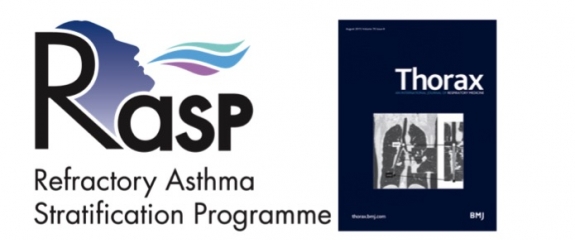Description of the RASP-UK programme reported in the current issue of Thorax

It is generally accepted that the current ‘one size fits all’ approach to asthma treatment, which incrementally increases the amount of therapy even though patients continue not to respond, is failing patients with severe asthma. Half the burden of asthma on healthcare resources is incurred by these 20% of patients with severe disease who remain poorly controlled despite application of all currently available therapies required by current treatment guidelines.
The UK Refractory Asthma Stratification Programme (RASP-UK) will explore novel biomarker stratification strategies in severe asthma. The objective of the programme is to discover ways to change the way severe asthma is managed in the clinic and to deliver a more personalised treatment approach to individual patients that results in better patient outcomes. Importantly, it will also investigate why some patients fail to respond to current treatments, in order to identify potential new drug treatments.
Prior asthma mechanistic studies have not stratified on inflammatory phenotype and the understanding of pathophysiological mechanisms in asthma without Type 2 cytokine inflammation is limited. RASP-UK will objectively assess adherence to corticosteroids (CS) and examine a novel composite biomarker strategy to optimise CS dose; this will also address what proportion of patients with severe asthma have persistent symptoms without eosinophilic airways inflammation after progressive CS withdrawal. There will be interactive partnership with the pharmaceutical industry to facilitate access to stratified populations for novel therapeutic studies.
The full, open-access publication is available here:


